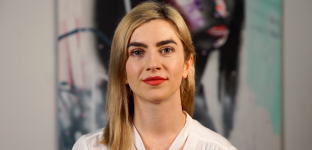It’s Time for Politicians to Implement Sensible Policies: An Interview with Nevena Spirovska

The ACT government made a forward thinking move in September by approving the country’s first pill testing trial at a music festival. But a few weeks later, organisers of the Spilt Milk festival said they were unable to continue with the trial because those running the pill testing service hadn’t provided the correct documentation.
The pill testing operators, STA-SAFE consortium, said they were unable to provide the documents in time because they were only made aware of the requirement a day before the deadline. Claims have since been made that the trial was cancelled due to federal government pressure, as it conflicted with its anti-drug stance.
Ending the drug war
Drug prohibition has been widely criticised for increasing the harms associated with drug use. Indeed, the consensus is now that the war on drugs has led to increased drug consumption, the growth of powerful crime networks and contributed to mass incarceration.
Government-sanctioned pill testing services have been operating in many European countries for decades. Politicians there have acknowledged that some individuals will use illicit substances, and have acknowledged it is better they do so in a safe manner.
In the US, the nation that initiated the drug war, eight state governments have legalised recreational cannabis use. In Colorado, the retail sale of marijuana has led to no overall adverse effects, and tax revenue raised through its sale has been funnelled into public health programs and schools.
Clinging to the past
Although the 2017 National Drug Strategy has harm minimisation as its focus, the majority of Australian politicians continue to take a zero tolerance approach to drug use. Nowhere is this more apparent than in the state of Victoria.
Under the Andrews government, Victoria police have begun using drug detection dogs in nightclub precincts and are pushing for increased powers to search people at music festivals without a reasonable suspicion of any wrongdoing.
The state government refused to accept a recent parliamentary inquiry’s recommendation to trial a medically supervised injecting centre in North Richmond. It also passed legislation banning all synthetic drugs, even though a similar move in the UK proved disastrous.
A time for change
Despite the old guard refusing to budge, there are new players in the political fold with more progressive views. Take independent candidate Nevena Spirovska, who’s running in the November 18 by-election in Northcote.
Ms Spirovska’s campaign platform prioritises a lot of issues that have come to the fore over recent years. It includes drug law reform, harm reduction, grass roots political action and homelessness advocacy.
And with recent attempts to criminalise homelessness in the context of rising rental prices , people forced to sleep on the streets need politicians batting for them. Nowhere is there a greater need for sensible politics than the City of Melbourne, which came close to creating new by-laws this year making rough sleeping illegal in the CBD.
Sydney Criminal Lawyers® spoke with Nevena Spirovska, coordinator of the High Alert and Welfair campaigns, about the need for mandatory pill testing, creating safe spaces for people experiencing homelessness, and what a truly independent candidate can bring to the table.
Firstly, Nevena, looking at drug law reform, how would you describe the current approach of the Victorian government given that prohibition has widely been acknowledged as a failure?
It’s been disappointing. This is a Victorian government that’s been resolutely against harm reduction approaches to drug law reform. And there’s been an ongoing push to increase police powers, which represents this really stagnant belief that they can arrest or police their way out of this issue.
Continuing with prohibition based policies only continues the cycles of violence and harm, criminalises vulnerable communities and further stigmatises recreational users.
We’ve seen this through Operation Safenight. And we’ve seen it through the call to increase stop and search powers.
Even though there’s a drug law reform inquiry underway in Victoria, when that inquiry reports back to the government, there’s no obligation for them to follow through with it.
I went and spoke to the Labor candidate about my platform, and unfortunately, she didn’t appear to be a supporter of drug law reform, and specifically expressed some doubts about drug checking services.
You’re advocating for a number of harm reduction approaches to the use of drugs. One of these, as you’ve just mentioned, is drug checking or pill testing at music festivals.
Can you outline why these services are needed? And what outcomes their implementation would provide?
We’ve seen at music festivals, in particular, that tougher policing measures and heavy-handed enforcement, ultimately hasn’t resulted in less harm. Every festival season brings with it headlines about drug-related illnesses, overdoses and even deaths.
As tragic as they are, what’s even more tragic is that the majority of them could have be prevented.
The fact that our government is willing to change police stop and search policies, before they even consider implementing drug checking services, is really discouraging and problematic.
The outcomes that I’d like to see from drug checking services is that they make the content of the drugs transparent to consumers, so people who use drugs have something that they haven’t had access to, which is information about the substance they are taking.
And also, we’ve seen in Europe and other places, where these are best practices, that these services usually conduct brief interventions, or conversations, to identify and support people who might have problematic consumption patterns.
This creates the opportunity to support those people, and gives them an opportunity to connect with services that they may not be aware they need.
A few weeks ago, organisers of the Spilt Milk festival pulled out of the first government-sanctioned pill testing trial in Australia. Many believe this was due to pressure from the federal government.
In light of this, do you think we’ll be seeing pill testing anytime soon? And what approach do parliamentarians need to take to ensure these trials take place?
For myself and many others that result was disappointing. But, I still believe we have to congratulate the ACT government for taking such a huge and positive step forward.
I feel that it is only a matter of time before these services become widely available, and best practice in Australia, as they are overseas.
Because, I don’t believe any reasonable politician wants to be part of a government that sends out the message that they’d rather see predominately young people die or become very sick, rather than support drug checking services.
The action that needs to be taken is for parliamentarians, legislators and decision makers to understand that the purpose is to reduce harm, and not to encourage use, which is often the line that’s towed when speaking out against drug checking services.
Another policy focus you have is ending the use of drug detection dogs at music festivals, cultural events, and nightclub precincts.
What sort of outcomes is the use of sniffer dogs having at these events?
The outcomes for using drug detection dogs at music festivals and in these other areas are incredibly negative for both the police and attendees of these events.
Their unnecessary use diminishes the relationship between the police and the community. And we saw that firsthand when we were working on the High Alert campaign, and seeing the uneasy relationship stirred up between punters and police, when they were using drug dogs on the street.
As the evidence shows across the world, and even in our own backyards in Victoria and NSW, it increases harm or the likeliness of harm, by putting people in a very unfortunate position, where if they do have drugs on their person, they are forced to choose between consuming them very quickly and dangerously, or being detected by police.
It’s also such a huge waste of police time and resources that could be otherwise put into much more useful avenues.
You’ve also prioritised the decriminalisation of cannabis as a policy focus. What’s the urgency around this matter?
I think the startling figure that Australians spend between $3.8 and $6 billion on cannabis.
In Victoria, decriminalisation would enable a reduction in spending on ineffective law enforcement and corrections, as would regulating the market if we could get to that point.
That money could be better directed towards more effective health focused policies and programs. We’ve got examples of this in Colorado, and other locations in America. We’re not starting from scratch.
We can use positive models that are working overseas and implement them for the betterment of not only Victoria, but the Northcote district, where I’ve been walking past houses doing letterboxing and it’s not an uncommon smell to smell.
Another key issue for you is homelessness. The Melbourne city council was going to make rough sleeping illegal. But, instead established new protocols to allow council officers to remove rough sleeper camps and encourage the homeless to keep their belongings to a minimum.
How have we come to the point where authorities are now blaming the homeless for their plight, and trying to punish them for it?
The homelessness crisis is such an incredibly tragic combination of decades of bad policy, a dire lack of affordable housing, and the general lack of care for poor and marginalised people.
Even though, the Victorian government has made commitments to improve access to housing, a lot more work needs to be done to address the underlying causes of homelessness and keep people who are sleeping rough safe from harm.
You’re advocating for safe sleeping zones for the homeless. How would this initiative work?
Rather than criminalising people who sleep rough, or blaming them for their own plight, these areas provide safe environments for those without other housing options available. These sleeping zones have been trialled by some Victorian councils.
The zones should be clearly identified, and be made readily available. It also helps to ensure that service providers are able to identify and support individuals on their path out of homelessness, by being able to provide support in these specific zones.
As a board member of the National Homeless Collective, you’re already undertaking advocacy work. One initiative you’re currently involved in is the Melbourne Period Project.
What does that project entail?
I’m so proud of the work that Melbourne Period Project has done. In just over two years, we’ve been able to expand our model from Melbourne to Brisbane, Sydney, regional Victoria and Canberra.
At our core, we provide menstruation items, support and assistance to women and trans men experiencing homelessness, and those who are sleeping rough.
We do street walks, but we also connect with service providers to provide specialised packs that cover all different types of periods.
Our director of the National Homeless Collective is Indigenous. So, we’ve also set up a new program which is Secret Women’s Business. By using the wealth that we have in the city of Melbourne, we’re able to provide culturally appropriate menstruation items to First Nations women across Australia.
And very importantly, the organisation is 100 percent grassroots. It’s secular. It’s LGBTIQ focused. It works with people experiencing homelessness.
We’re completely donation run. And we’re making a big difference on the streets.
You’re also focusing on the need for the greater allocation of resources to deal homelessness amongst members of the LGBTIQ community.
Just how dire is this need? And what sort of provisions should be made to deal with this situation?
It’s incredibly important that we put more focused services in this area. Because we know that members of the LGBTIQ community are statistically more likely to experience homelessness and housing displacement. And they face unique challenges, such as discrimination for gender presentation.
Part of the work that we do with Melbourne Period Project is always making sure that we’re advocating for women and trans men experiencing homelessness, because it’s not just women who experience menstruation.
We need to ensure charities that are run by and have the support of the community, are helping to address the risk of harm and violence that can be targeted at people who are visibly LGBTIQ when they are homeless or displaced.
And lastly, you’re running as an independent in the Northcote by-election. What can a truly independent candidate bring to the table?
I bring a lot to the table. Because, I don’t have to pander to government interest. I don’t have to engage in deliberately antagonistic point scoring.
I’m focusing solely on challenging the status quo of parliament, and fostering progressive change through creative solutions.
As an independent candidate, my loyalties lie firmly with the community, and with evidence.
I don’t have any factional infighting, because it’s just me and my team. So, we’re able to focus solely on the policies and putting the policies first.
Nevena, thanks very much for taking the time to have this chat with us today. And best of luck in the by-election.
Thank you so much.







